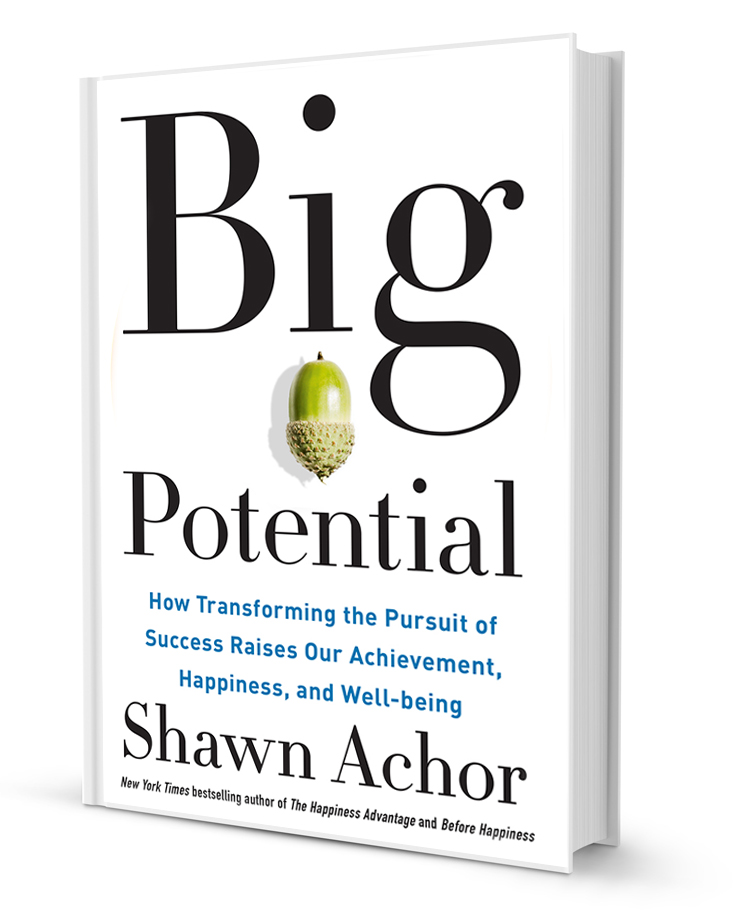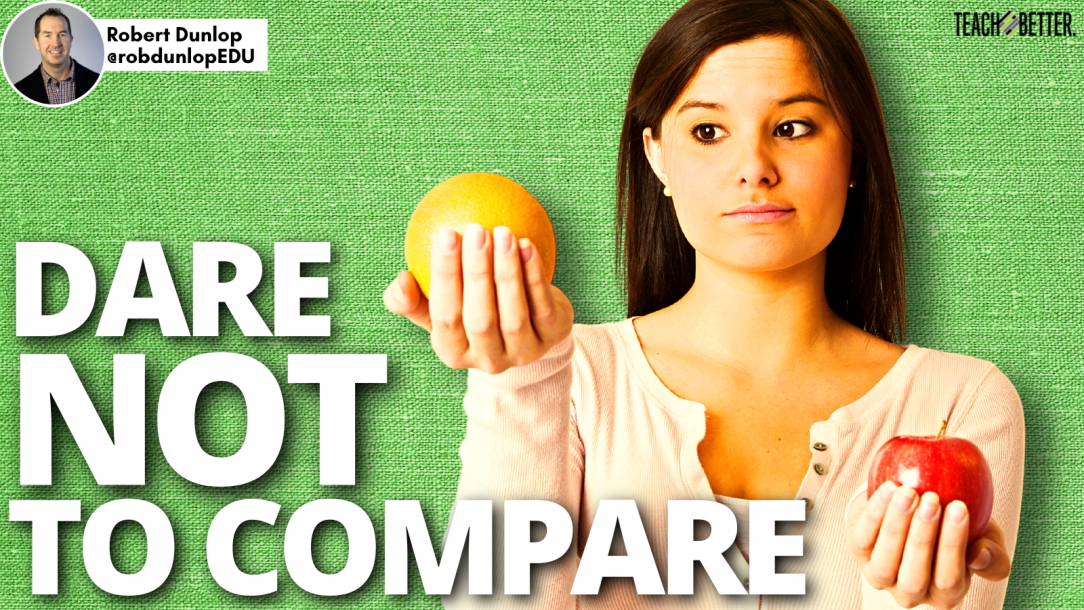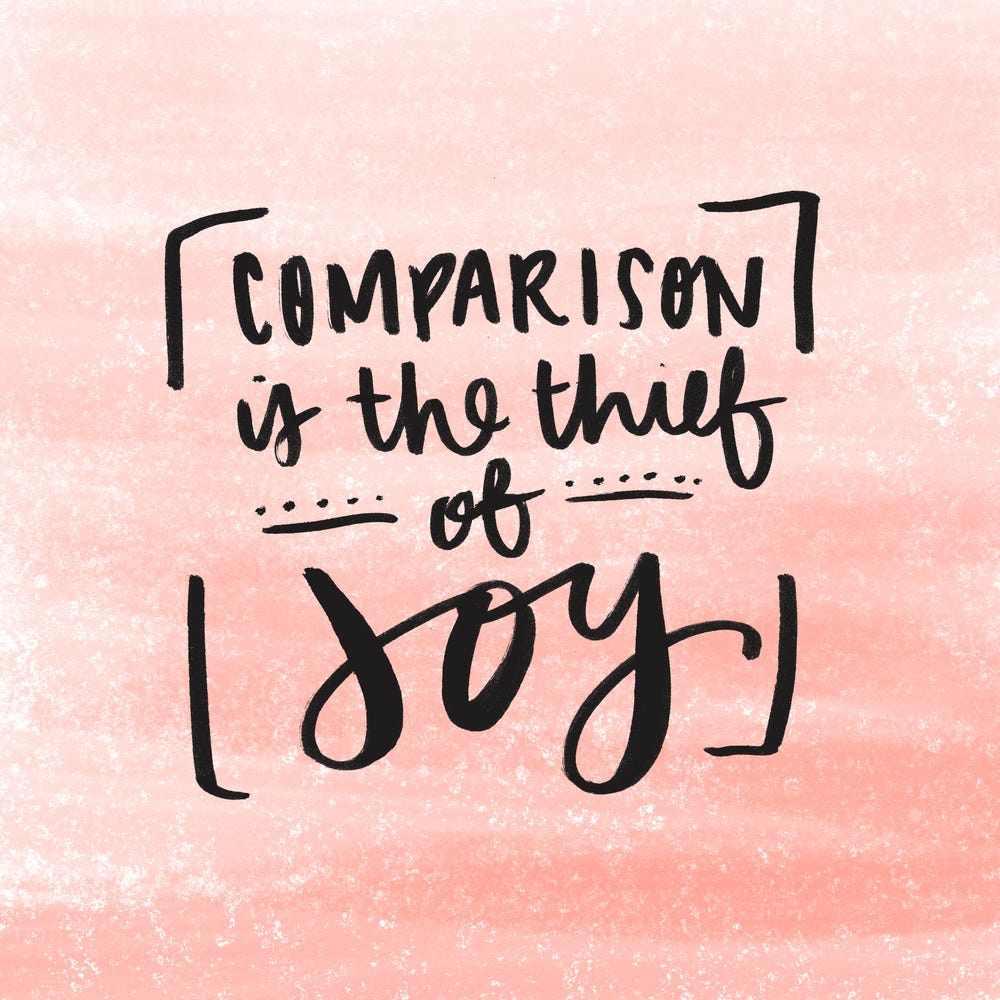TL;DR:
- Do our end-of-the-year awards always have the positive impact that we hope they do?
- In celebrating people as being the top performers, you put down the rest of the group.
- Avoid superlatives when praising someone.
- Compliment others without comparing.
Awards: Don’t Compare
As the end of the year approaches, educators are often tasked with selecting who gets which award at the final assembly or graduation. Meanwhile, administrators are cramming in their staff evaluations and selecting their teachers of the year. All of this is being done with the best of intentions, but will this have the positive impact we are hoping for?
The younger me would argue that these awards and accolades push everyone to a higher standard. As a grade eight teacher, I have given many awards to students at graduation, selected many students of the month, and even pinned the most successful tests on my bulletin boards. Up until a few years ago, I would have argued that this is a positive part of school and work.

Changing Views
I still recall the day that my views on this changed. Now I know you might be expecting this to be a pivotal moment in my career where a student was in tears or a parent was yelling at me to reverse my thinking. That is not the case.
I was reading Big Potential by Shawn Achor. The premise of the book is that we will never achieve our big potential acting alone. It is our ability to collaborate and make each other better and allow us to reach new heights.
So whether you are in the classroom or an administrator, think about how you can recognize the amazing things that are happening in your school without creating unhealthy competition. Share on XThis book was very aligned with my thinking. I was nodding, giving a few amens, and smiling throughout. That was until I hit the part about comparison praise. This is the idea of giving someone praise based on how they compare with others. As I read through this chapter, it made so much sense and I could feel the embarrassment settling in. It forced me to reflect on a bad habit I had of using words like the best, the greatest, the smartest, etc. When using comparison praise I never thought about the message that I was sending to everyone else it would impact.
My Experience
One moment that kept popping back into my mind was my experience facilitating a session for educators. I invited a guest speaker who was a friend and colleague of mine. In addition, he has received many accolades inside and outside of the profession. When it came time to introduce him I said, ‘Lee is the greatest…’ Immediately, a hand shot up and a woman said, “We are all great educators in this room.” As I look back on this, she was right to call me out. By trying to raise him up, I accidentally put down everyone else in the room.
To be honest, I find this a hard habit to break. I still catch myself wanting to use comparison praise. But now I catch myself. I learned that we can praise people in much more effective ways that will help to promote collaboration and growth. Here are five tips when trying to wean yourself from comparison praise.
Avoid Superlatives
The instant you use words like the best, the smartest, etc. you are raising one person above the rest. The result is that everyone else likely feels inferior and demoralized. Even if that is not the intention, that will likely be the takeaway. Not only that, but you are putting a target on that person’s back and this can negatively impact the relationships they have with others.
Compliment Without Comparing
Often we try to level up our compliment by adding comparative phrases to emphasize our point. This is not necessary. Keep the comment or conversation based on the person that you are talking to or about. It will mean more to that person and it will not have negative repercussions that can develop when comparison praise is used.
Be Specific
The more specific the praise and recognition, the better! Most people are more interested in knowing what they did well versus knowing how they did in relation to others. This type of feedback will better strengthen confidence and will give that person something to build on. But telling someone they are the best gives them nowhere else to go.
Reflect on How Comparison Praise Impacts the Others
If you do plan to give an award or use comparative praise, take a moment to reflect on what the others in the room might feel and how that might impact relationships. It can be deflating to watch your colleague be put on a pedestal when you have worked hard all year. Just as it can be difficult for a student to leave a Student of the Month assembly empty-handed when they tried really hard. Ask yourself, what message am I sending to the rest of the group when I deem someone as the best?
[scroll down to keep reading]
Reflect on How You Feel on the Other End of Comparison Praise
Since learning about the destructive nature of comparison praise, I am much more aware of how often it is used. When you end up on the opposite end of comparison praise, take time to reflect on how this makes you feel. Does it motivate you? Does it change how you feel about the person receiving the praise at your expense? Does it improve the culture?
Regardless of our role in education, we are all leaders. What we say and how we say it matters to those around us. So whether you are in the classroom or an administrator, think about how you can recognize the amazing things that are happening in your school without creating unhealthy competition. By eliminating comparison praise, you are shining the light on everyone!
About Robert Dunlop
Robert Dunlop is a teacher, speaker and author who has a passion for helping other educators love their careers. His work with thousands of teachers, principals and support staff has given him insight into the importance of happiness in education.
He believes that all students deserve to be surrounded by educators who are passionate and love coming to school each day. To help make this a reality, he has made it his mission to help educators make happiness and well-being a priority.
Recently, he published STRIVE for Happiness in Education and created a free staff wellness program on his website MotivatEDU.com. He continues to share his message through talks and workshops.



